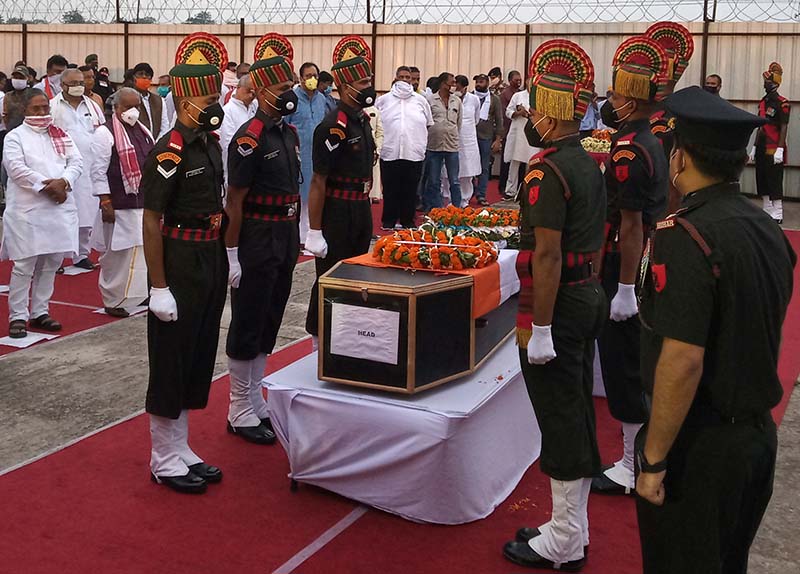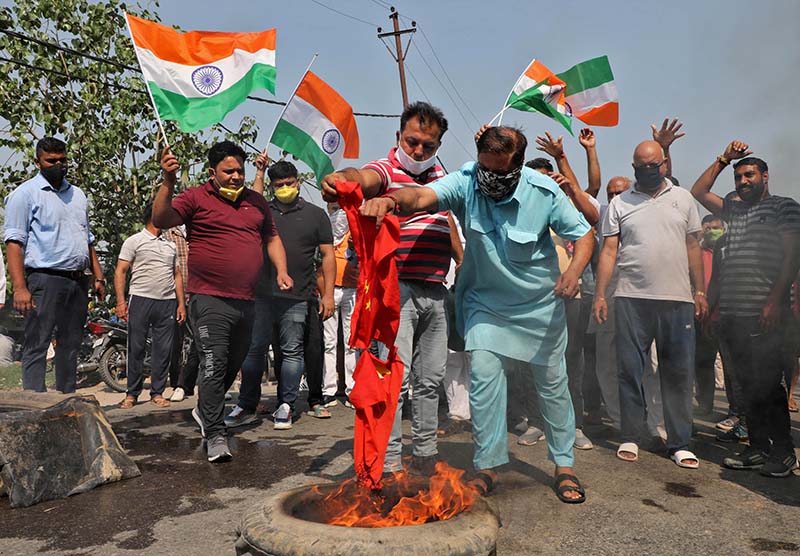India, China want peace but blame each other after deadly border clash
NEW DELHI/BEIJING: India and China said they wanted peace but blamed each other on Wednesday after soldiers of the two sides savagely fought each other with nail-studded clubs and stones on their Himalayan border, killing at least 20 Indian troops.
"We never provoke anyone," Indian Prime Minister Narendra Modi said on national television, referring to Monday's hand-to-hand fighting. "There should be no doubt that India wants peace, but if provoked, India will provide an appropriate response."


In Beijing, foreign ministry spokesman Zhao Lijian said the clash erupted after Indian soldiers "crossed the line, acted illegally, provoked and attacked the Chinese, resulting in both sides engaging in serious physical conflict and injury and death".
He said he did not know of any Chinese casualties, although Indian media quoted officials as saying at least 45 people were dead or injured on the Chinese side.
Zhao said the overall situation at the border was stable and controllable.
Under an old agreement between the two nuclear-armed Asian giants, no shots are fired at the border, but there have been fisticuffs in recent years between border patrols.
According to Indian officials, soldiers were hit with clubs studded with nails and stones during a brawl that erupted in the remote Galwan Valley, high in the mountains where India's Ladakh region borders the Aksai Chin region captured by China during the 1962 war.
The rival armies have been eyeball-to-eyeball at their border for decades, but it was the worst clash since 1967, five years after China humiliated India in that war.
Modi, a strident nationalist, was elected to a second five-year term in May 2019 following a campaign focused on national security after spiralling tensions with old enemy Pakistan, on India's western border.
India's gung-ho media and the opposition piled pressure on him to respond aggressively.
"Gloves are off, with the Galwan valley clash, China pushed too hard," the Times of India wrote in an editorial. "India must push back."


On social media, bloggers and media aggregating platforms shared Indian media reports, such as the Indian army’s announcement acknowledging that the death toll had risen to 20.
Most vocal was the Global Times, a paper published by the official paper of the country’s ruling Communist Party.
Its editor-in-chief, Hu Xijin, took to domestic and global social media platforms to scold India, saying “Indian public opinion needs to stay sober” and to warn that China did not fear a clash.






